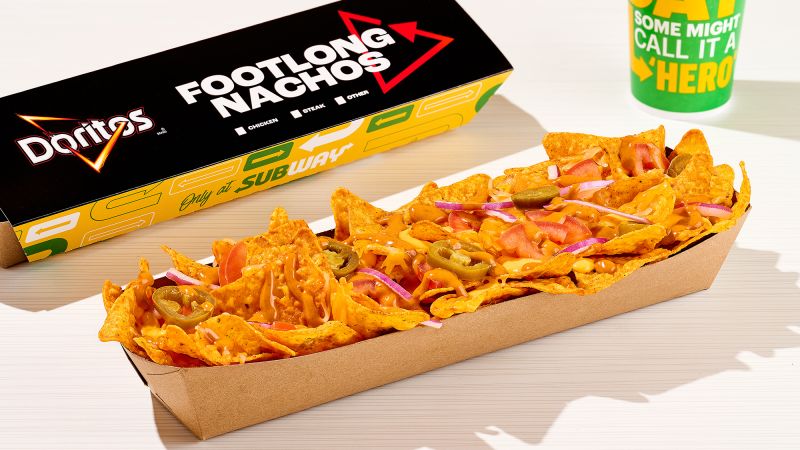
There’s a trade war happening. Governments around the world are imposing and adjusting tariffs to address shifting geopolitical and economic realities. The corresponding supply chain uncertainty has thrown many enterprise back offices into turmoil.
On Wednesday (April 2), at an event entitled the “Make America Wealthy Again Event” during what the administration has termed “Liberation Day,” President Donald Trump announced his sweeping reciprocal, country-based tariffs, clarifying that the White House executive order means, “They do it to us, we do it to them.” Displaying a posterboard to outline the new measures, the president explained that his concept of reciprocal tariffs wouldn’t necessarily mean parity. Many of the tariffs on U.

S. trading partners settled at around half, or less, with China being levied duties of 34%, the EU 20%, India 26%, Switzerland 31%, Japan 24%, among many others. Trump also announced a 10% blanket tariff on imports.
In advance of the Rose Garden event, the U.S. government also let it be known earlier Wednesday that, effective at midnight April 3, the U.
S. will impose 25% tariffs on automobile imports. A similar tax on auto parts will go into effect a month later.
The tariffs announced Wednesday join the tariffs Trump has already imposed on Canada, Mexico and China, and on automobiles, steel and aluminum.The implications are as vast as they are immediate. From global supply chains to financial transactions, the recalibration of tariffs could have far-reaching consequences.
As enterprises grapple with new realities, the relationship between tariffs and know-your-business (KYB) compliance has become intertwined.Tariffs can incentivize companies to shift suppliers or partners, particularly when seeking to avoid higher costs. At the same time, when tariffs are imposed or adjusted, businesses must ensure compliance not only with customs regulations but also with broader compliance frameworks, including KYB.
Rushing to onboard new suppliers without thorough KYB checks increases the risk of engaging with disreputable or noncompliant entities. Tariff changes often indicate broader geopolitical shifts that can result in sanctioned entities or heightened scrutiny of specific business relationships.Read more: How CFOs Can Manage for Today’s Supply Chain Choke PointsTariffs and KYBTariffs are taxes or duties levied on imported or exported goods.
Often used as instruments of economic protectionism or as responses to unfair trade practices, tariffs are also tools for revenue generation and political leverage. Their application can vary significantly depending on the industry, the origin of goods, and the political relations between trading nations.KYB refers to the due diligence businesses must undertake to verify the legitimacy, structure, ownership and operational integrity of their partners, suppliers or clients.
KYB has become a critical element of corporate compliance, particularly for financial institutions and multinational corporations managing complex supply chains.Increasing tariffs can create incentives for businesses to resort to fraudulent practices such as transshipment, undervaluation, or misclassification of goods. Robust KYB protocols are instrumental in helping to detect these schemes and safeguard corporate compliance and reputation.
Read more: Tariff Turmoil Puts Supplier Risk, Supply Chain Management Under MicroscopeKYB as CompassThe global supply chain has always been intricate, but recent developments have added layers of complexity atop the multitude of dependencies many industries have on their supplier bases. “There’s technology that can help,” Matt Carey, senior vice president, Office of the CFO at FIS, told PYMNTS. “But it really depends on the industry.
If I’m a computer manufacturer and I have a bunch of chips on order from my suppliers, I can’t just change my chip supplier overnight.”“If I have visibility into my working capital, I can negotiate better agreements and pre-buy materials like aluminum or steel,” Carey added. “If you don’t have a centralized view of your financials, it’s tough to negotiate with an upper hand.
”PYMNTS covered Monday (April 1) how Walmart is reportedly pushing suppliers in China to reduce prices to mitigate new tariffs.Meanwhile, PYMNTS on Wednesday examined how the tariffs — and other economic pressures — are impacting consumer spending. And as PYMNTS Intelligence data in the March 2025 Certainty Project reveals, escalating trade tensions marked by the recent imposition of tariffs have introduced a wave of uncertainty across various sectors, notably impacting mid-sized companies.
Fortunately, the marketplace is responding. Zip on Tuesday added a solution for supplier risk management to its procurement orchestration platform; while Clearco, a provider of growth capital for eCommerce, on Wednesday teamed with Cavela to allow access to Clearco’s capital to pay manufacturers and suppliers more efficiently, with the goal of improving vendor relationships and managing costs, particularly in light of tariffs.The post Know-Your-Business Is Key to Stability as Trump’s Tariffs Shake Up Supply Chains appeared first on PYMNTS.
com..








_8.jpg?itok=wp-xhXRB)





